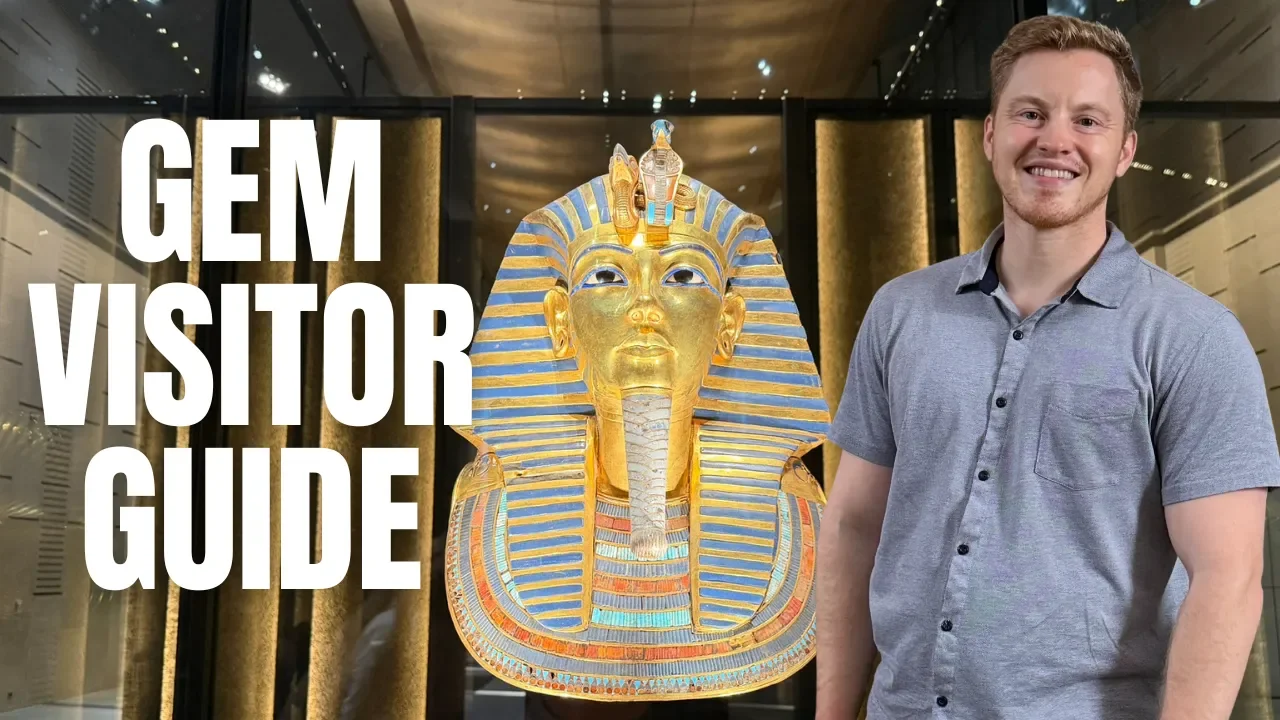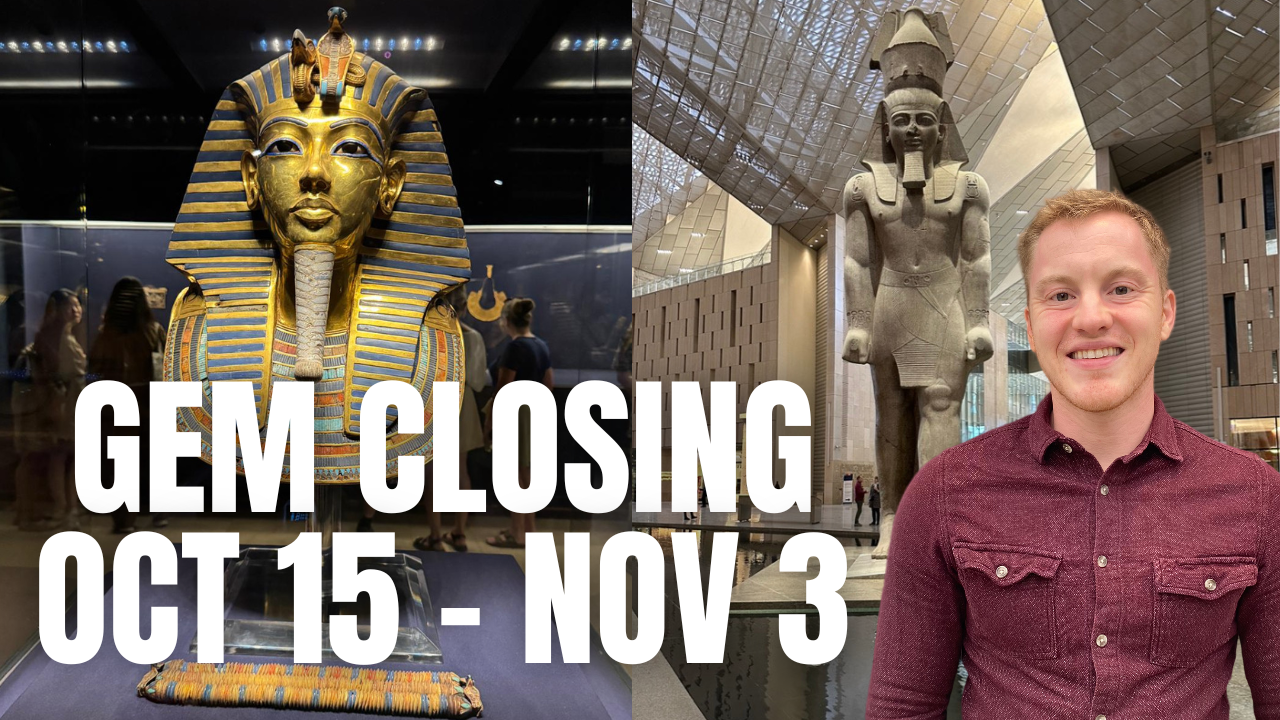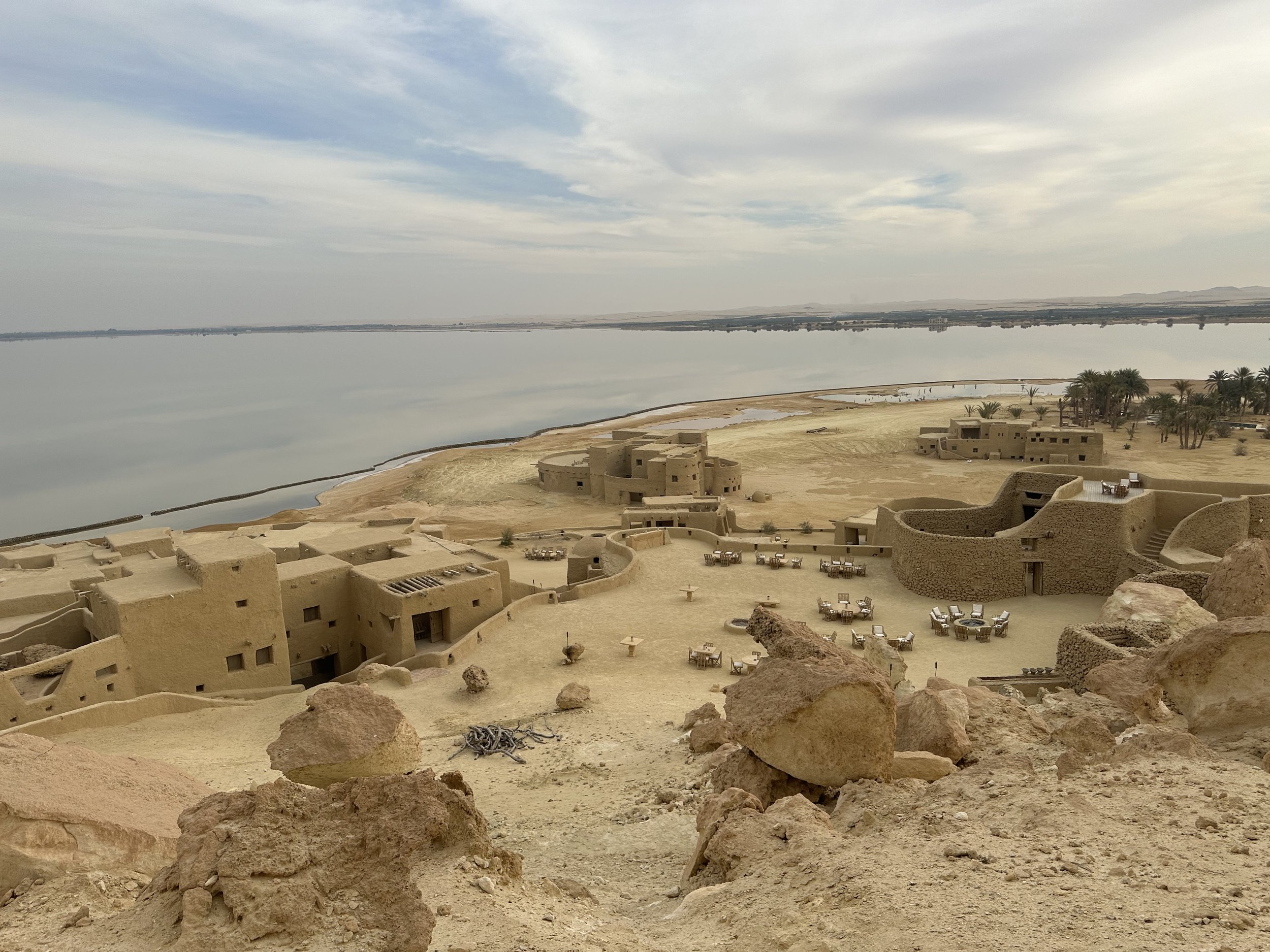Egypt Adventures Travel Blog Posts

The Nile Dahabiya - boutique Dahabiya Nile Cruise between Luxor and Aswan !
I recently took a 3-night, 4-day cruise on The Nile Dahabiya - we started in Aswan and journeyed north on the Nile River, finishing in Luxor - and I have to share my amazing experience on this bespoke yacht!
Check out:
1. The different cabins, suites, and common areas on board The Nile Dahabiya
2. Why you should choose The Nile Dahabiya instead of one of the giant Nile Cruises, and what makes it stand out in comparison to other Dahabiya yachts
3. My experience during my 4 days on The Nile Dahabiya from Aswan to Luxor, and the itinerary from Luxor to Aswan
4. How you can book your cruise on The Nile Dahabiya

Grand Egyptian Museum Visitor Guide: Everything you need to know about the GEM!
In this Grand Egyptian Museum Guide, learn about:
1. The Grand Egyptian Museum's timed entry system - what you NEED TO KNOW before planning your visit
2. How to buy tickets for the Grand Egyptian Museum (hint: you must buy them online, in advance!)
3. How much time you need to visit the Grand Egyptian Museum (no, it's not days and days like everyone says)
4. What are the highlights to see at the GEM
5. The best restaurants and coffeeshops to take a break in between the galleries

How to Spend Christmas in Egypt
Since many travelers have time off from work and school around the Christmas Holiday, it's a very popular time to travel to Egypt! I've even arranged multiple trips with my own family to visit Egypt at Christmastime, since that's when my parents and sisters have the most time off from work. I'm often asked though, does Egypt celebrate Christmas?
If you're visiting Egypt in Christmas, here is everything you need to know, like:
1. When do Egyptians celebrate Christmas (this may surprise you!)
2. Is Christmas a good time to visit Egypt?
3. What to expect when visiting Egypt during Christmas
4. Specific Christmas activities in Egypt
5. Local Egyptian Christmas traditions

The Ultimate List of Things to do in Cairo, Egypt
Cairo is the largest city in Egypt and the country's capital, and it is chock full of amazing sights to see, food to eat, and experiences to have. I have lived in Cairo off and on for 13 years, and have spent the last five years arranging hundreds of trips to Egypt's capital and all over the country. Here is my ultimate list of things to do in Cairo Egypt!

Best food in Cairo, Egypt - a foodie’s guide to Egypt’s capital
I have been living in Egypt off an on for 13 years, and I want to share where you can find the best food in Cairo Egypt. From hole-in-the-wall kitchens and downtown Cairo street food to fine-dining restaurants with cocktails and award-winning chefs, Egypt's capital has plenty of delicious Egyptian food for everyone.
In this guide to the best food in Cairo, Egypt, I'll share my favorite places to eat in downtown Cairo, Zamalek (an island in the Nile River), across the Nile in Giza, and a few places spread throughout greater Cairo. I'll also give you specific recommendations for dishes to order at each restaurant, from traditional Egyptian cuisine to popular international hotspots.

Vegan food in Egypt: how and where to eat Egyptian vegan food!
There are lots of options for Egyptian vegan food you can try during your trip, since many dishes that Egyptian people regularly eat are already vegan! Let's talk about:
-How to say you are vegan in Egyptian Arabic
-Great options for Egyptian vegan food
-Specific restaurants you should try Egyptian vegan food at
Keep this post handy during your Egypt trip as a guide for helping you choose great Egyptian vegan cuisine at no matter what restaurants you try, from street food to fine-dining options!

Egypt Vegetarian Food: What and Where to Eat!
Vegetarian food in Egypt is plentiful and easy to find, because tons of the dishes that Egyptian people eat every single day are naturally vegetarian! In this post, I will share all the best options for Egypt vegetarian food, good restaurants to find vegetarian food, and how to say that you are vegetarian. Luckily, most restaurants in Egypt will have several vegetarian food options, so it’s not too hard to recommend places! You can use this post as a guide when eating out almost anywhere in Egypt, as there should be at least one or two of these food items on any restaurant’s menu.

Grand Egyptian Museum Opening November 4, 2025 (closed Oct 15 - Nov 3)
The Grand Egyptian Museum opening is on November 4, 2025! Cairo's new museum, the Grand Egyptian Museum (GEM for short), has already opened all of its main galleries, Great Hall, Grand Staircase, and retail space with lots of restaurants and shops. But the official opening of the Tutankhamun Galleries, and the Solar Boat Museum (the final two areas of the GEM that have not opened) will finally happen this fall during the Grand Egyptian Museum's full opening on November 4.

Famous Egypt Food - 4 Popular Egyptian Foods to Try!
The most famous Egyptian foods include Koshary, Falafel, Fuul (stewed fava beans), and molokhiyya (a traditional soup), but most people have never heard of all four, so I want to share the most popular Egypt food that you will encounter during your trip! That way you can recognize traditional Egyptian food, know what Egypt street food to try, and have some great Egyptian dishes to order when you try local restaurants.

Worst Time to Visit Egypt - When to Plan your Egypt Trip!
I've been living in Egypt off and on for 12 years, and I've been leading tours throughout Egypt for 4 years, and I'll let you in on a secret - the worst time to visit Egypt is over the Christmas Holiday and in the months of July and August, but there's more to it than that, so let's jump in and talk about the worst time to visit Egypt, why these times are not ideal for your Egypt trip, and what to keep in mind if you have to plan your trip during one of those times anyway.

Cairo to Alexandria Train - timetable, tickets, and what to expect!
During your Egypt adventure, do you want to take the train from Cairo to Alexandria?
In this post, I will share everything you need to get from Cairo to Alexandria by train, including:
1. The Cairo to Alexandria train schedule
2. How to buy Cairo Alexandria train tickets
3. Is taking the train from Cairo to Alexandria worth it?
4. What types of trains there are from Cairo to Alexandria
5. What to expect on the train rider from Cairo to Alexandria

Adrere Amellal Ecolodge in Siwa, Egypt
Adrere Amellal is a luxurious eco lodge in Siwa Oasis, and is hands down the most unique place I have every stayed in Egypt! Let me show you this majestic hotel in the desert, where the beds are made of salt, the sunsets are once-in-a-lifetime, and the hospitality is unparalleled.

Grand Egyptian Museum opening DELAYED until end of 2025
The Grand Egyptian Museum is opening at the end of 2025, even though the museum previously announced it would have it's grand opening on July 6. Let’s talk about why Egypt’s new museum is delaying the official opening, when the new opening date will be, what to expect at the museum's full opening, and what you can currently see in the GEM's main galleries (which are already open).

Is Cairo Worth Visiting? An Honest Guide for Solo Female Travelers
This guest post by Her Asian Adventures shares why Cairo is worth visiting for solo female travelers, plus tips to stay safe and enjoy the city.
I won’t lie—before my first trip to Cairo, I was low-key terrified. I’d read all the horror stories: scams, catcalling, pushy vendors. As a solo female traveler, I seriously considered skipping the city altogether.
But I’m so glad I didn’t.
Sure, there were some tricky moments—but overall? Totally worth it. The pyramids blew my mind, the food was incredible, and I picked up a ton of helpful tips for getting around Cairo solo.
So if you’re wondering, is Cairo worth visiting?—especially on your own—I’ve got you. I’ll walk you through the top reasons to visit, what felt safe (and what didn’t), and how to make your trip smoother, more fun, and way less stressful.

Grand Egyptian Museum Closing from June 15 - July 5
The Grand Egyptian Museum will be closed from June 15 - July 5, 2025, in order to get the museum ready for the opening of the Tutankhamun Galleries and the Solar Boat Museum, and the grand opening, which is scheduled for July 6, 2025 (previously scheduled for July 3). In this post you will learn about what to expect regarding the GEM’s closing, what I recommend doing if you are going to Egypt during the period the GEM will be closed to the public, and what to look for regarding the museum’s grand opening.

Grand Egyptian Museum Opening July 3!
The Grand Egyptian Museum, the largest archaeological museum in the world, has its opening date set for July 3! Or, so they say. Here's what we know about the Grand Egyptian Museum opening and when to expect Egypt’s newest museum to open.
